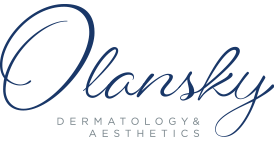If you are reading this as a rosacea sufferer, you are probably desperate for help. Rosacea is a chronic skin disorder that usually worsens over time and is often characterized by relapses and remissions. Many people may find themselves frustrated at trying to alleviate embarrassing and disruptive rosacea symptoms. However, professional dermatologic treatments, such as laser therapy, combined with lifestyle changes to avoid triggers gives sufferers the best chance for controlling rosacea.
Symptoms
Rosacea is characterized by a red flushing that is seen primarily on the cheeks and nose, but can also be found on the chin, forehead, chest and back. The specific symptoms of rosacea largely depend on the specific type you have.
According to the American Academy of Dermatology, Rosacea has four subtypes:
- Erythematotelangiectatic rosacea: redness, flushing, with visible blood vessels
- Papulopustular rosacea: redness, swelling and acne-like breakouts
- Phymatous rosacea: skin thickens and has a bumpy texture
- Ocular rosacea: eyes are red and irritated and eyelids can become swollen
Triggers
While there is still not a definite known cause of rosacea, there are some common triggers that cause rosacea symptoms to flare up. Learning what triggers your specific rosacea episodes and avoiding those factors can dramatically help you control this skin condition.
Here are some rosacea triggers factors to be aware of:
- Hot weather
- Emotional stress
- Spicy foods and drinks
- Exercise
- Wind
- Hot baths
Treatment
Laser therapy has proven to be a successful rosacea treatment. Olansky Dermatology Associates proudly offers advanced laser therapy to remove visible blood vessels and reduce redness. This therapy works by emitting wavelengths of light that target tiny blood vessels just under the skin. Heat from the laser’s energy builds in the vessels, causing them to disintegrate.
While not every rosacea case is the same, it is important that sufferers realize there is help available. A dermatologist can also recommend daily skin care regimens that will minimize rosacea, such as using a gentle facial cleanser, rinsing with lukewarm water and applying sunscreen.

